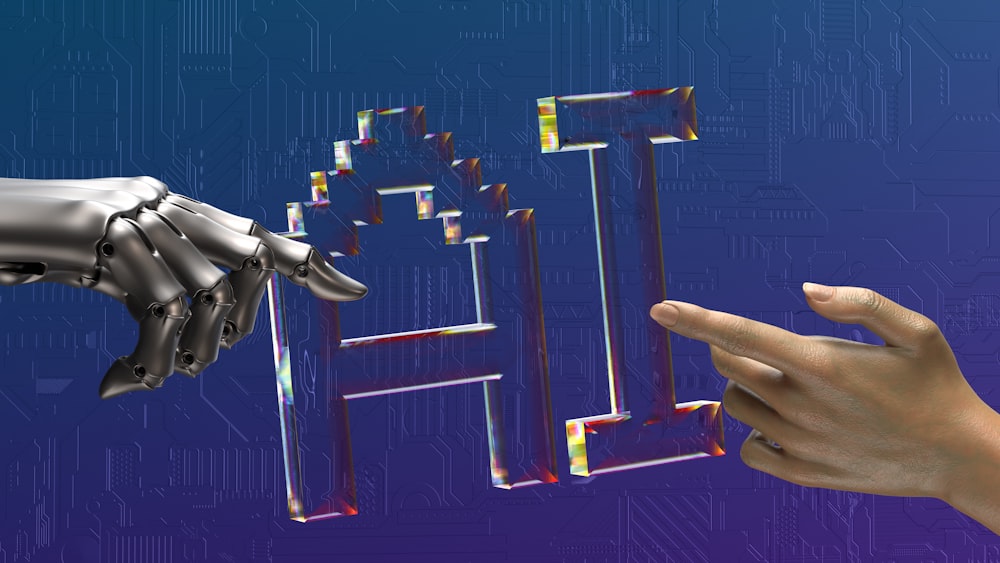
Unveiling the Top ChatGPT Development Companies: Pioneering Conversational AI Excellence
Table of contents
- The Rise of Conversational AI
- Criteria for Top ChatGPT Development Companies
- OpenAI – The Pioneer
- Hugging Face – Empowering ChatGPT Development
- ChatGPT Development by OpenAI Partners
- Case Studies: Real-world Applications of ChatGPT Development
- Challenges and Ethical Considerations in ChatGPT Development
- The Future of ChatGPT Development
- Conclusion
In the ever-evolving landscape of artificial intelligence, ChatGPT has emerged as a game-changer in the field of conversational AI. As businesses and individuals seek more advanced and human-like interactions with machines, the demand for proficient ChatGPT development companies has skyrocketed. This blog aims to explore and showcase the top ChatGPT development companies that stand out in the industry, offering cutting-edge solutions and pushing the boundaries of conversational AI.
The Rise of Conversational AI
Before delving into the top ChatGPT development company, it's crucial to understand the significance of conversational AI in today's digital era. Conversational AI refers to the use of natural language processing (NLP) and machine learning (ML) to enable machines to understand, interpret, and respond to human language. This technology has found applications in customer service, virtual assistants, language translation, and much more.
The introduction of ChatGPT, developed by OpenAI, has been a breakthrough in the field. It is a language model that uses deep learning techniques to generate human-like text based on the input it receives. Leveraging ChatGPT, businesses can create applications that engage users in natural and dynamic conversations, enhancing user experience and satisfaction.
Criteria for Top ChatGPT Development Companies
Selecting the top ChatGPT development companies involves evaluating various factors, including expertise, innovation, industry recognition, and client reviews. The companies listed in this blog have demonstrated excellence in these areas, making them leaders in the field of conversational AI development.
OpenAI – The Pioneer
OpenAI, the organization behind ChatGPT, is undoubtedly a pioneer in the development of conversational AI. With a mission to ensure that artificial general intelligence (AGI) benefits all of humanity, OpenAI has consistently pushed the boundaries of AI research. ChatGPT, their language model, has gone through multiple iterations, each one improving upon the previous version.
OpenAI has not only contributed to the research community by releasing models and datasets but has also provided commercial access to ChatGPT through the OpenAI API. This has empowered developers and businesses to integrate ChatGPT into their applications, unlocking a new era of natural language understanding.
Hugging Face – Empowering ChatGPT Development
Hugging Face has emerged as a key player in the ChatGPT development ecosystem. The company provides an open platform for natural language processing models, including ChatGPT, making it accessible to developers worldwide. Their platform offers a wide range of pre-trained models, enabling developers to kickstart their projects without starting from scratch.
Hugging Face's commitment to democratizing AI aligns with the broader industry goal of making advanced AI technologies accessible to a broader audience. Their user-friendly platform, rich documentation, and active community make them a go-to choice for ChatGPT developers venturing into ChatGPT-based projects.
ChatGPT Development by OpenAI Partners
Several development companies have partnered with OpenAI to bring ChatGPT-based solutions to the market. These companies leverage their expertise in AI development, customization, and integration to deliver tailored applications that meet the unique needs of their clients.
1. CronJ: Transforming Customer Service
One of the top ChatGPT development companies, CronJ, specializes in transforming customer service through AI-driven solutions. By integrating ChatGPT into customer support systems, they enable businesses to provide instant and personalized assistance to their customers. This not only enhances customer satisfaction but also streamlines support processes, reducing response times and operational costs.
2. Toptal: Virtual Assistant Excellence
Toptal has carved a niche in developing virtual assistants powered by ChatGPT. Their virtual assistants exhibit a high level of conversational intelligence, understanding context and responding naturally and coherently. These virtual assistants find applications in various industries, including healthcare, finance, and education, providing users with a seamless and interactive experience.
Case Studies: Real-world Applications of ChatGPT Development
To truly understand the impact of ChatGPT development, let's explore a couple of real-world case studies where businesses have successfully implemented ChatGPT-based solutions.
a. Transforming E-commerce with ChatGPT
Leewayhertz, an e-commerce giant, integrated ChatGPT into its customer-facing chat platform to enhance the online shopping experience. By leveraging the model's natural language understanding capabilities, customers could engage in more dynamic and personalized conversations. This not only increased customer satisfaction but also resulted in a significant boost in sales as the conversational interface guided users through product recommendations and purchase decisions.
b. Improving Mental Health Support
In the healthcare sector, Bacancy Technology utilized ChatGPT to develop a mental health support application. The application provided users with a confidential and empathetic virtual conversation partner that could assist with stress management, provide coping strategies, and offer resources for professional help when needed. The success of this application highlighted the potential of ChatGPT in addressing real-world challenges and contributing to societal well-being.
Challenges and Ethical Considerations in ChatGPT Development
While ChatGPT development has opened up new possibilities, it comes with its own set of challenges and ethical considerations. Some of the key challenges include bias in language models, the potential for misuse, and the need for responsible AI development practices.
a. Addressing Bias
ChatGPT, like many language models, may inadvertently perpetuate biases present in the training data. Development companies need to be vigilant in identifying and mitigating biases to ensure fair and inclusive interactions. Ongoing research and advancements in mitigating bias in AI models are crucial for the responsible development of ChatGPT-based applications.
b. Mitigating Misuse
The immense power of ChatGPT raises concerns about potential misuse, such as generating misleading information or malicious content. Development companies play a vital role in implementing safeguards and monitoring mechanisms to prevent the unintended consequences of AI-generated text. Collaboration between the AI community, developers, and policymakers is essential to establish guidelines that promote responsible AI use.
c. Responsible AI Development Practices
To address ethical considerations, it is imperative for ChatGPT development companies to adopt responsible AI development practices. This includes transparent communication about the capabilities and limitations of ChatGPT, ensuring user consent in data usage, and actively seeking user feedback to improve the system. Companies should also engage in ongoing research and development to stay ahead of emerging ethical challenges in the field of conversational AI.
The Future of ChatGPT Development
As ChatGPT continues to evolve, the future holds exciting possibilities for its development and application. Advancements in model architecture, training techniques, and the integration of multimodal capabilities (combining text with other forms of data, such as images and audio) are expected to further enhance the capabilities of ChatGPT.
a. Multimodal Integration
The integration of multimodal capabilities into ChatGPT is a promising avenue for development. This would enable the model to not only understand and generate text but also interpret and generate content based on images, audio, and other forms of data. This could lead to more immersive and context-aware conversational experiences.
b. Continued Research and Model Iterations
The field of natural language processing is dynamic, with continuous research and development driving advancements in model architectures and training techniques. Future iterations of ChatGPT are likely to address existing limitations and enhance the model's performance across a broader range of applications.
c. Ethical AI Advocacy
The future of ChatGPT development also involves a collective effort towards advocating for ethical AI practices. Development companies, researchers, and policymakers must work together to establish guidelines, standards, and regulations that promote the responsible and ethical use of ChatGPT and other conversational AI models.
Conclusion
In conclusion, the landscape of ChatGPT development is marked by innovation, collaboration, and a commitment to advancing the capabilities of conversational AI. OpenAI, Hugging Face, and various development companies are at the forefront of this revolution, driving the adoption of ChatGPT in diverse applications.
As we navigate the future of AI development, it is essential for companies to prioritize responsible practices, address ethical considerations, and contribute to the positive evolution of conversational AI. The top ChatGPT development companies highlighted in this blog are not only shaping the present but also paving the way for a future where human-machine interactions are more seamless, intuitive, and impactful.


